Horse supplements or horse dietary supplements are the materials fed extra with the normal ration for various purposes. At present days, feed supplements are becoming popular to enhance the performance, health, immune system, look, and workability of horses. As a horse owner, you may find hundreds of feed supplements for your valuable horse. You must make the decision based on the requirement and taking expert advice from a reputed horse nutritionist.
Horses feed includes mainly hay or grass. Grains are sometimes considered as supplements. The average horse diet includes grains of various categories, green grass, and hay. The must feed an adequate quantity of carbohydrates, protein, fat, vitamins, and minerals prescribed by the nutritionist. The number of various categories of rations is determined by the presence of ingredients like crude protein (CP), crude fiber, ether extract, dry matter (DM), and ash contents.
What is the best supplement for horses?
There are plenty of horse supplements available in the market. You will not buy a supplement based on its price. Your equine nutritionist will select the specific supplement based on the nutritional requirement, performance builder, improving digestion, hoof care, developing skin and hair, joint supplements, age of horses, massage of horses, supplements for weight gain, and electrolytes. There are no specific best horse supplements. You will select the required feed supplements prescribed by the registered veterinarian. Before purchasing, you must read the ingredients, instructions, dosage, and indications properly.
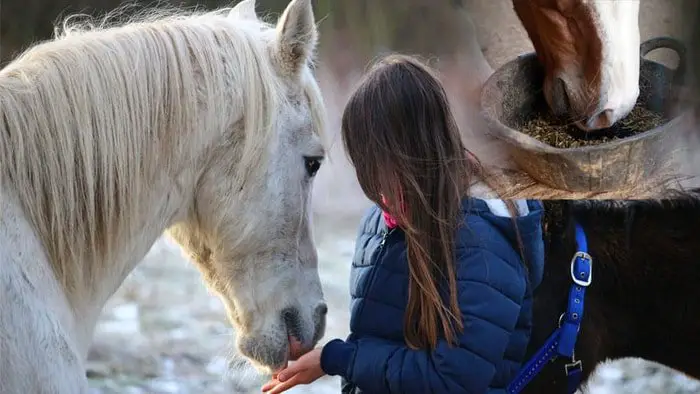
1. Horse Supplements: Improving Digestion
The peculiarity of the horse digestive system is it is a simple stomach animal but eats roughages. The roughage part goes microbial digestion in the cecum. Horses are prone to colic and indigestion. Mainly after any antibiotic treatment, the load of digestive microbes is reduced. In this period, the horse becomes weak; colic may appear, indigestion and other digestive disorders arise. This time for improving digestion, live yeast culture, and probiotics (helpful bacteria like Lactobacillus) supplements are given with feed. These supplements have a positive effect on metabolism. Toxin binders and Oligosaccharides are given with feed to bind harmful toxins, and some Gram-negative bacteria like Salmonella.
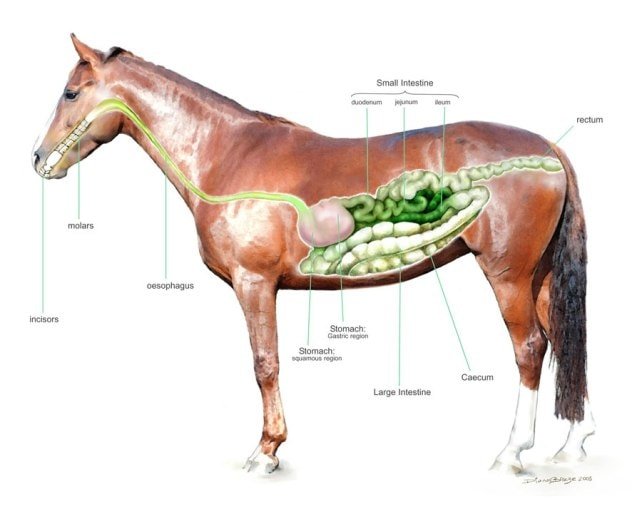
2. Vitamin and Minerals
A balanced horse diet should have an adequate amount of vitamins (A, B, C, D, E, and K) macrominerals (Calcium, Phosphorus, Magnesium, Sodium, chloride, potassium, and sulfur), and micro minerals(zinc, iron, manganese, molybdenum, cobalt, chromium, selenium, and silicon). Vitamins and minerals supplements are widespread to feed additives for horses and other animals. Horses can produce vitamin C from glucose in the liver and Vitamin B from the microbes in the hindgut.
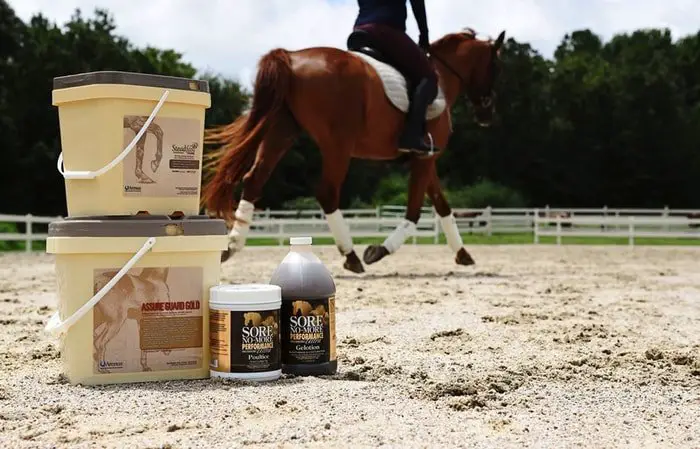
Vitamins and mineral supplements are given to horses for various reasons like for growing animals, pregnant and lactating mares, after antibiotic treatment, during any stress condition, to enhance the performance, or to correct nutritional deficiencies. Based on the requirement, you must select a vitamin-mineral supplement by the advice from your vet.
3. Horse Supplements for Joints
Joint or bone supplements are required for the older horses as they are prone to osteoporosis and growing horses as they need more calcium. The most popular and widely used joint supplement is Glycosaminoglycans (GAG), which helps the body to repair the healthy cartilage from wear and tear. Other joint supplements are chondroitin sulfate, hyaluronic acid, silicon, Vitamin C, collagen, silica, ester C, and Methylsulfonylmethane (MSM).
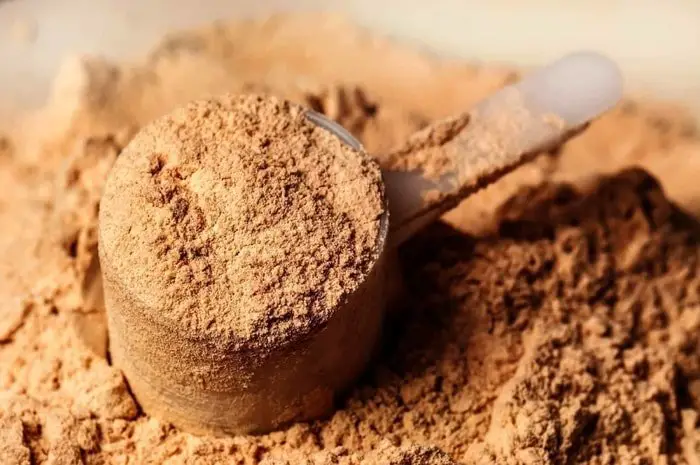
4. Hoof, Skin, and Hair Supplements
Horse’s hoof and feet are the most important organs to keep your horse healthy and serviceable. The skin and hairs are the indications of healthy, well-maintained horses. There are many feed additives and supplements are available in the market for better growth of hoof, skin, and hair. The main ingredients of these supplements are biotin, zinc, methionine, lysine, cobalt, copper, Omega 3 and 6 fatty acids, Threonine, and MSM. Biotin and zinc improve the growth of cartilage of hooves, enhancing the growth of collagen fiber. Rice polish is a good source of biotin in horse diet.
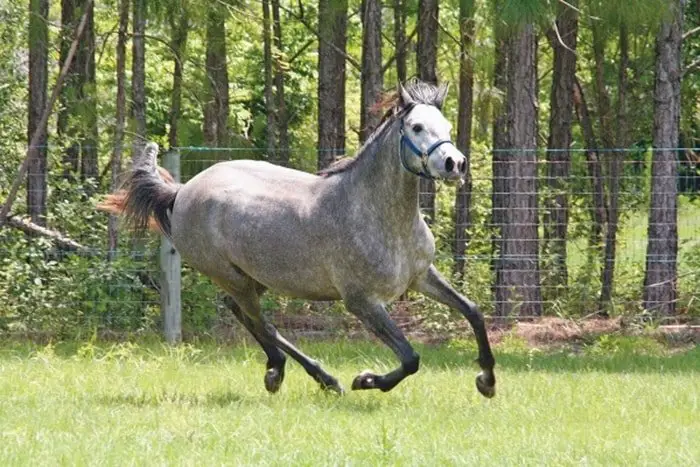
5. Health Aids for Horses
A healthy horse is the desire of every owner and racer. Some health additives are given with feed or in oral or injectable form. The most common health aids are vitamin E, Cod Liver Oil containing a high amount of vitamin A and selenium. The excess amount of health additives is sometimes detrimental to health. Vitamin A helps the growth of hair, improves the immune system; vitamin E helps to remove free radicals from the body, and makes the horse young. Germinated gram or cowpea contains natural vitamin E.
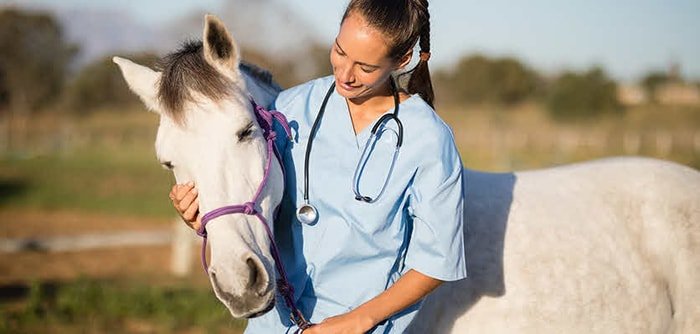
6. Performance Improver of Horse
A good working horse must have stamina and strength to win a race and competitive events. You can use some supplements to improve the stamina of your horse. The common additives are wheat germ oil, vegetable oils containing long-chain saturated alcohol (Octacosanol), MSM, an anti-inflammatory agent that reduces the soreness of muscle, relieves arthritis, and improves the growth of hooves.
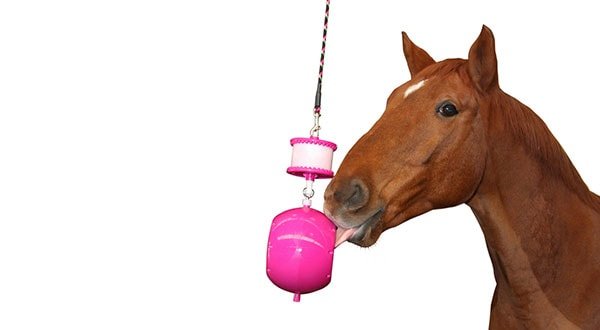
7. Horse Grooming or Massage
Horse grooming or massage is a good exercise that enhances the performance, health, boosts the immune system, removes stress, dirt, and improves the blood circulation in the skin and extremities. Horses need grooming every day. It is better you will groom your horse lightly before taking exercise. After a massive task, you will allow your horse to cool down and give him thorough grooming or massage. In a hot environment, give your horse a good bathe with soap and antifungal shampoo.
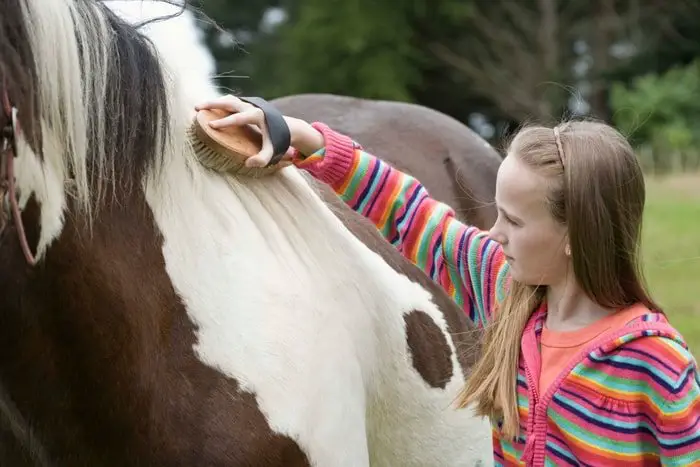
8. Weight Gain Supplement of Horse
Some horses are fed on only forage and hays. Even after giving grains and concentrating on the diet, some horses fail to gait optimum body-weight. Your vet will suggest a quality feed supplement like vegetable fats, corn flax, rice bran, and amino acids in the ration. You must follow the adequate amount as per prescription.

9. Horse Gastric Support Supplements
Horses are prone to gastric ulcers due to irregularity of feeding, excess stress, and sudden change of ration. Gastric ulcers cause poor performance, discomfort, and deteriorates the health status of your horses. Gastric support supplements contain antacid, L-glutamines, soluble fiber, sea buckthorn, aloe, and licorice.
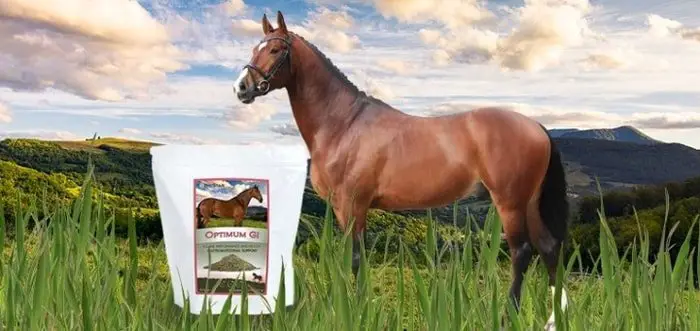
10. Calming Horse Supplements
Calming supplements are those agents which improve the nerve function of your horse. The racehorse, horses of equestrian sports, showjumpers become easily spooked or high- strung. Those horses get enough exercise and practices that may reduce the function of nerves. The horse becomes lethargic and weak after having enough feed supplements. The joint calming supplements include vitamin B1, L-tryptophan, and magnesium. Some herbal products such as hops, camomile, and valerian are also used as calming supplements.
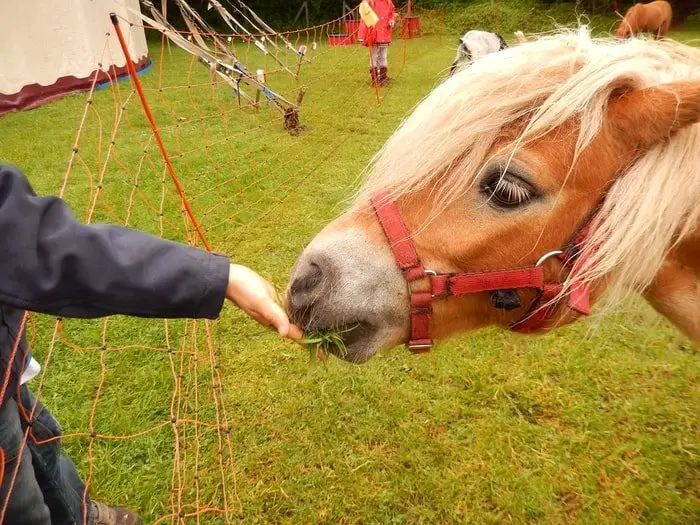
11. Supplements for Older Horses
The old horses are generally less able to assimilate feeds than healthy younger animals. Severely worn teeth make it difficult to chew and ingest poor-quality roughage, and body weight and conditions are challenging to maintain, especially in winter. Ground roughage contained in high fiber pelleted feeds can make a useful contribution.
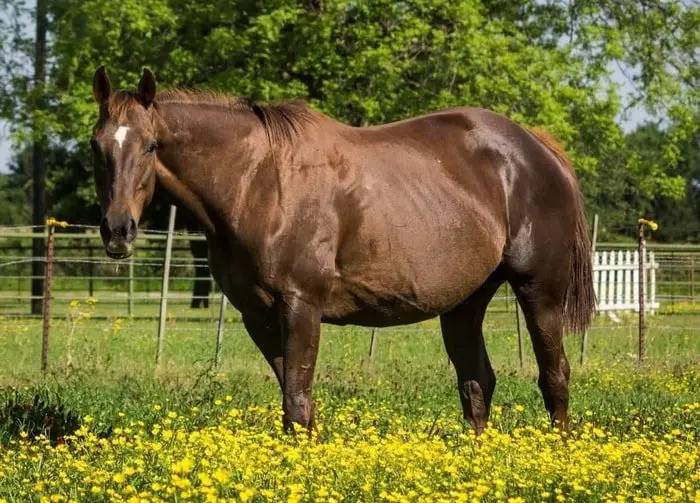
Maintenance of average body weight may require some concentrated feedstuffs. Elderly horses, especially elderly ponies on the good pasture, are subjected to laminitis and colic. Therefore concentrated feedstuffs should be split amongst several daily feeds, and a feed of good roughage should be given and eaten before old horses are first introduced to pasture. Pelleted feeds are often helpful to prevent colic if they contain 15% fiber, 10-20% grain, and 12% good quality protein, vitamins, and minerals are required by the other adult horses. Inclusion of cooked cereal grains can be beneficial.
12. Horse Supplements for Mare and lactating Mother
The gestation period of mares commonly lasts 335- 345 days. The pregnant mare should be kept fit throughout the pregnancy, but not fat, as foaling difficulties are reduced. The birth weight of the foal depends on the size of the mare more than the size of the stallion and the amount of feed given during the period of gestation.
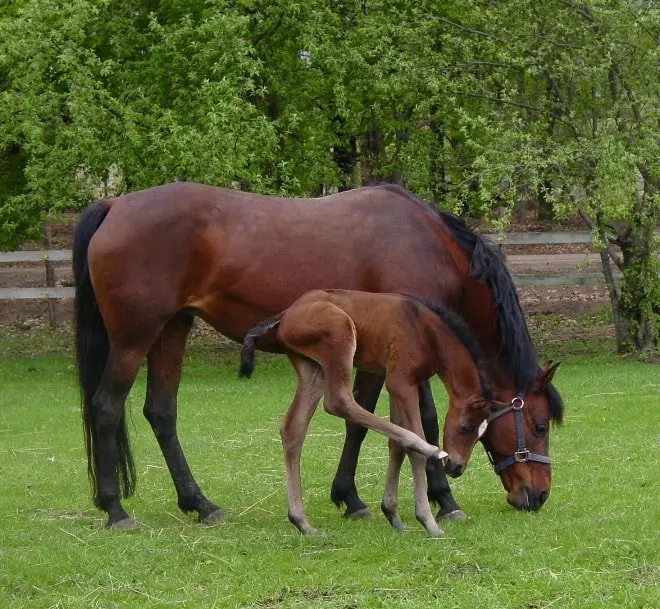
The protein requirement is ordinarily low (5-7%) at the initial days and increased up to 16-17% in the latter part of gestation. An average lactating mare requires eight times more energy than a healthy horse. During the last 90 days of pregnancy, mares kept entirely on reasonably good quality pasture on high-quality conserved forage containing 30-40% green clover, alfalfa, which requires no other sources of calcium.
13. Pain Relief for Horses
Analgesics and antipyretics should be administered if the horses have pain and/or fever. Occasionally, diazepam will assist in increasing the voluntary feed intake by direct hypothalamic stimulation of appetite. If diazepam is used, feed must be available immediately after the administration. Anabolic steroids may be of some use in increasing appetite. However, they are not suitable during an acute situation.
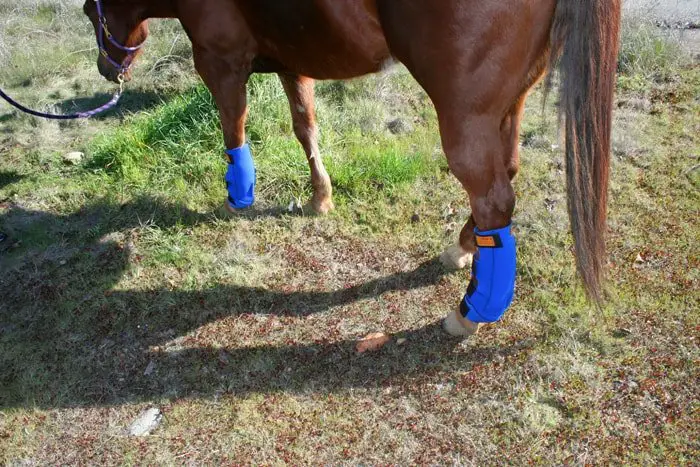
14. Electrolytes Supplements for Horses
The water and electrolyte requirements of working horses are mainly related to sweat production and excess respiration. Horses do not reduce their sweat production even after extreme dehydration. Typically, a healthy horse requires 4-5 gallons of water per 100 kg of body weight in a day. The total amount of electrolytes depends on the amount of sweat production after heavy work. The composition of sweat does not change even the low intake of electrolytes after every exercise electrolytes should be given with drinking water, especially magnesium.
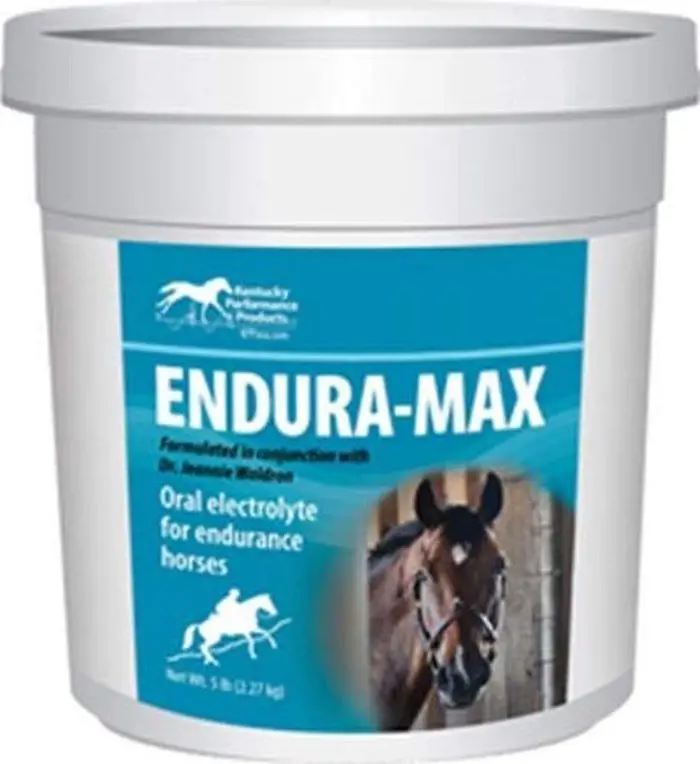
15. Horse Supplements: Blood Builders
Blood builder supplements are usually a mixture of multivitamin-mineral mixtures added to horse feed. The supplements are both in pelleted or liquid form. The mode of action is to enhance the oxygen-carrying capacity of red blood cells to cells. This improves the function of muscle and bone during heavy work and long-lasting capability and endurance.

Horse Supplements Near Me
There are many sources where you can buy horse feed additives and supplements. You can buy from your nearest veterinary pharmacy and stores. The following are the online sources of horse supplements:
- Chewey.com
- Amazon.com
- horse.com
Final Advice on Horse Supplement
A Healthy and working fit horse is the desire of everyone. As a horse owner and lover, you must have adequate knowledge of horse health. Horse feed additives are prevalent ingredients of horse diet. In my article, I have discussed the composition and indications of the most common supplements in brief. This piece of information will help you a lot in choosing the best supplements for your lovely horses. If the above information is sufficient, please share it through social media with your friends.